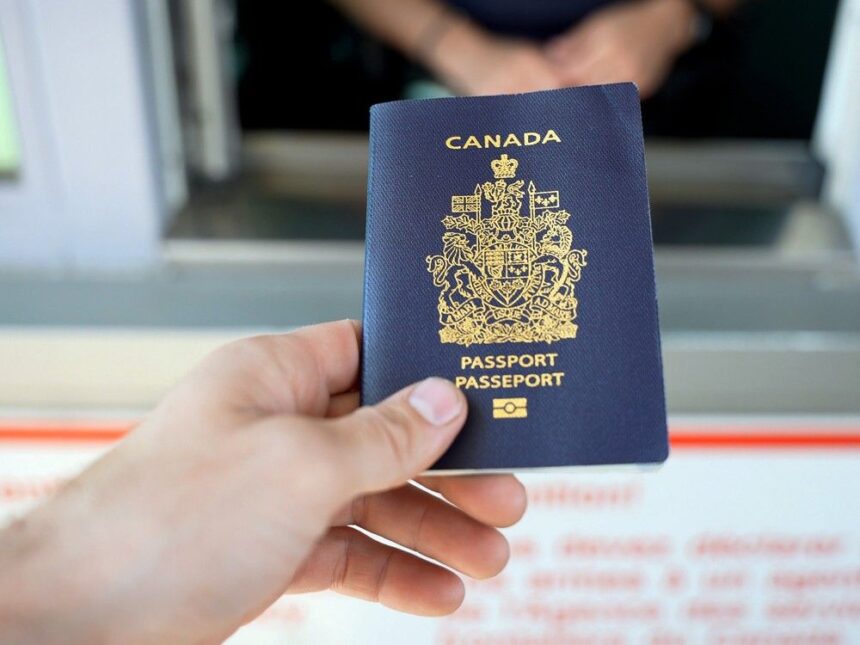In a notable shift within the global mobility landscape, Canada’s passport has climbed to the third position in the prestigious Henley Passport Index for 2024, overtaking the United States and solidifying its status as one of the world’s most powerful travel documents. This remarkable advancement comes as international borders continue reopening following pandemic-era restrictions, reshaping global mobility hierarchies.
The newly released rankings reveal that Canadian passport holders now enjoy visa-free or visa-on-arrival access to an impressive 186 destinations worldwide, a testament to Canada’s strengthening diplomatic relations and respected international standing. This represents a significant improvement from previous years and places Canada in an elite tier of nations with exceptional global mobility privileges.
“The Canadian passport’s rising strength reflects the country’s growing diplomatic influence and positive international relationships,” notes immigration policy expert Dr. Meredith Chen. “This enhanced mobility provides substantial advantages for Canadian citizens in both business and leisure travel contexts.”
According to the comprehensive Henley & Partners analysis, Singapore maintains its dominant position at the top of the index, with its citizens enjoying unprecedented access to 195 global destinations without requiring advance visas. Following closely behind are France, Germany, Italy, Japan, and Spain, all tied for second place with visa-free access to 192 destinations.
The United States, once a perennial top-tier passport, has slipped to fourth position alongside several European nations. This continuing decline from its former prominence reflects shifting geopolitical dynamics and changing visa reciprocity agreements worldwide.
For Canadian business travelers, this elevated passport status translates to tangible competitive advantages. The ability to enter more countries without cumbersome visa applications means faster market entry, reduced administrative barriers, and enhanced opportunities for international partnership development. Canadian companies engaged in global commerce may find new efficiencies in deploying personnel across borders.
“The practical implications for Canadian travelers are substantial,” explains Vincent Torres, global mobility consultant at Transnational Advisory Group. “Beyond convenience, this level of access represents real economic value. Time saved on visa applications, reduced processing fees, and the ability to make spontaneous business trips all contribute to tangible productivity gains for Canadian professionals working internationally.”
The ranking improvement comes at a time when Canadian politics has emphasized strengthening international alliances and promoting global cooperation on issues ranging from climate change to security. Foreign policy experts suggest this passport strength serves as a measurable indicator of diplomatic success.
The methodology behind the Henley Passport Index, considered the definitive ranking of global passport power, involves extensive analysis of exclusive data from the International Air Transport Association (IATA), which maintains the world’s largest database of travel information. The index has been tracking passport strength for 19 years, providing a longitudinal view of changing global mobility patterns.
At the opposite end of the index, Afghanistan remains in last place, with its citizens able to access just 26 destinations visa-free – a stark reminder of the profound mobility inequality that persists in today’s world. This 169-destination gap between the highest and lowest-ranked passports underscores how citizenship and passport privileges continue to determine individuals’ movement rights across the globe.
For Canada, this passport strength milestone arrives as the nation continues to position itself as a key player in international affairs. Government officials have privately expressed satisfaction with the improved ranking, seeing it as validation of Canada’s diplomatic approach and commitment to constructive international engagement.
Looking ahead, mobility experts predict continued evolution in global passport hierarchies as nations negotiate new visa agreements and respond to changing security environments. The question remains: in an increasingly complex geopolitical landscape, can Canada maintain or even improve its newfound passport advantage, and what strategic diplomatic initiatives might be required to preserve this valuable mobility asset for Canadian citizens?










